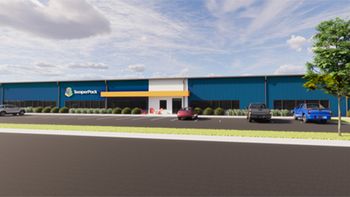
US biopharmaceutical supply chain resilient and effective during early Covid-19 response
Distributors closely collaborated with stakeholders to anticipate changes and mitigate disruptions
A new report published by the
In the report titled, The First 90 Days: US Biopharmaceutical Finished Goods Supply Chain Response to Covid-19, pharmaceutical distributors, manufacturers and other stakeholders in the biopharmaceutical supply chain leveraged their relationships and prior emergency response experience to get medicines safely delivered to patients.
Distributors closely collaborated with manufacturers and hospitals, pharmacies, providers and other partners to anticipate changes in demand, respond to evolving patient needs and mitigate disruptions.
Findings showed:
- The supply chain was able to balance increased demand through avoidance of single sourcing, supply risk monitoring, communication and data transparency, and proactive inventory management.
- Distributors promptly set up individual allocation programs to manage inventory of the most in-demand products in an equitable way, which helped contain the shortages initially observed of critical care drugs used to treat Covid-19 patients in ICUs.
- While drug shortages as measured by the Food and Drug Administration (FDA) increased during the first 90 days, there were few significant disruptions (actual and purported) beyond Covid-19 therapeutics. At least 83 percent of drugs that were reported in shortage to the FDA had a second-line or alternative treatment available.
- The pharmaceutical supply chain was able to adapt to accommodate changes to the channels through which patients acquired their prescriptions.
- The biopharmaceutical industry invested substantially in developing capabilities to curb the pandemic’s short- and long-term challenges, including speeding to market coronavirus testing, therapeutics and vaccine candidates, while also supporting communities through in-kind donations.
- By leveraging their emergency response capabilities, supply chain stakeholders were able to promptly put in place business continuity plans that preserved the health and safety of frontline employees with minimal disruption to their operations.
Additionally, Deloitte’s social sentiment assessment, which monitored and analyzed consumers’ online comments about perceived supply disruptions shows that consumer sentiment for the biopharmaceutical industry improved during the first 90 days of the pandemic, indicating that consumers had a positive perception of the industry’s performance in managing the early challenges of Covid-19.
The Healthcare Distribution Alliance (HDA) represents primary pharmaceutical distributors—the link between the nation’s pharmaceutical manufacturers and pharmacies, hospitals, long-term care facilities, clinics and others nationwide. The HDA Research Foundation, HDA’s non-profit charitable foundation, serves the healthcare industry by providing research and education focused on priority healthcare supply chain issues.
The First 90 Days: US Biopharmaceutical Finished Goods Supply Chain Response to Covid-19 received support from several sponsors, including Cardinal Health, CuraScript SD, Novartis Pharmaceuticals, Endo International’s PAR Pharmaceutical, KeySource, Ascend Laboratories, IQVIA and Upsher-Smith Laboratories.
The report is available as a complimentary download through the HDA website.
Newsletter
Stay ahead in the life sciences industry with Pharmaceutical Commerce, the latest news, trends, and strategies in drug distribution, commercialization, and market access.




